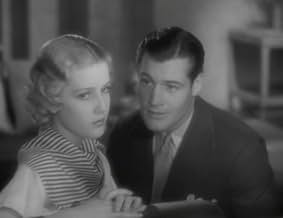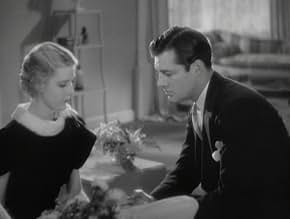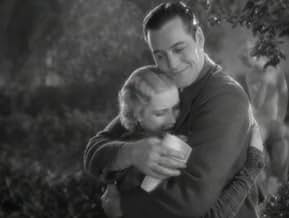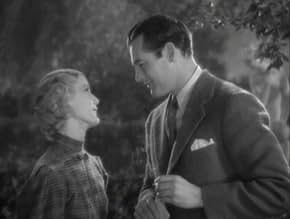Adicionar um enredo no seu idiomaAn American heiress marries a lord, and shocks London society.An American heiress marries a lord, and shocks London society.An American heiress marries a lord, and shocks London society.
- Direção
- Roteiristas
- Artistas
- Prêmios
- 1 vitória no total
Violet Kemble Cooper
- Duchess
- (as Violet Kemble-Cooper)
Virginia Howell
- Mrs. Saunders
- (cenas deletadas)
Walter Walker
- Mr. Saunders
- (cenas deletadas)
Finis Barton
- Diana - George's Mistress
- (não creditado)
Bunny Beatty
- Lady Helen
- (não creditado)
May Beatty
- Duchess of Hightower
- (não creditado)
Tyrell Davis
- Ernest
- (não creditado)
Bradley Metcalfe
- Little Boy
- (não creditado)
- Direção
- Roteiristas
- Elenco e equipe completos
- Produção, bilheteria e muito mais no IMDbPro
Avaliações em destaque
American hardware heiress Constance Bennett marries English lord Alan Mowbray. Then she overhears him remarking to his mistress he only married her for her money. She's heartbroken, but becomes a pillar of British society. When her sister, Anita Louise, comes to visit, Miss Bennett engineers a breakup with Miss Louise's American fiance, and an engagement to a British nobleman.
This definitely pre-code movie is based on a W. Somerset Maugham play, with lots of snide business and the sort of arch comments that passed for wit in a post-Oscar Wilde theater. Director George Cukor has mediocre success in convincing his cast that this is no longer being performed on the boards. The result is that the Americans are rather quiet, while the British are over the top... which may have been a deliberate choice, given that at this time, British movies seemed to have a lot of appearances by Finlay Currie as an American (invariably named 'Hiram' or some such), flattening his vowels with a sledge hammer and being obnoxious about money. Minor Watson is outstanding as an admirer of Miss Bennett, and Tyrell Davis is flamboyant as he teaches Violet Kemble Cooper to dance.
This definitely pre-code movie is based on a W. Somerset Maugham play, with lots of snide business and the sort of arch comments that passed for wit in a post-Oscar Wilde theater. Director George Cukor has mediocre success in convincing his cast that this is no longer being performed on the boards. The result is that the Americans are rather quiet, while the British are over the top... which may have been a deliberate choice, given that at this time, British movies seemed to have a lot of appearances by Finlay Currie as an American (invariably named 'Hiram' or some such), flattening his vowels with a sledge hammer and being obnoxious about money. Minor Watson is outstanding as an admirer of Miss Bennett, and Tyrell Davis is flamboyant as he teaches Violet Kemble Cooper to dance.
Our Betters (1933) Constance Bennett, Violet Kemble Cooper, Anita Louise, Alan Mowbray, Gilbert Rowland. A Somerset Maugham play, directed by George Cukor about the Lords and Ladies of British society, is amusing and biting at the same time. They have parties and weekends at someones estate, and gossip about who is sleeping with who, and learn all the latest dance steps. Lady Greystone has been 'educated' in her betters ways by her titled husband who she learned too late married her only for her money. While he spends all his time with his mistress, she gives lavish parties for her "betters." Soon she is the top hostess among the titled and idle set. Some wicked humor by Maugham, who was an invited guest to many of the same sort of places among the same sort of people. Bennett is dazzling in her wardrobe by Hattie Carnegie and Cooper is too funny trying to keep her gigolo from straying. And the final scene with a rouged and mincing dance instructor is very funny. As in any hard times, the depression era movie goer wanted something light and amusing and not deep and real. They saw 'real' everyday in their homes and on the streets. Kind of like today. 8/10
This is a delightfully bitter and witty play by Maugham, adapted to film almost exactly as it appeared on stage. Kemble as Minnie steals the show. And the last scene, between Minnie and the dance instructor, is simply hilarious. Charles Starrett, later a Western star in "B" movies, is wooden, and poor Gilbert Roland doesn't have a lot to work with in the script. But the others sparkle and shine, telling us what sophisticated light comedy can be at its best. What a shame this has not appeared on VHS.
Fascinating, richly-textured morality play by the great Somerset Maugham, acted to perfection by a first-rate cast including Constance Bennett at her absolute peak. George Cukor directed with a master's touch, Max Steiner provided the score, and David O. Selznick's production was polished. Constance Bennett plays the disillusioned American wife of a British aristocrat, who finds out on her wedding day that her husband married her only for her money. She decides to take life on their terms, and becomes a cunning seductress among a large group of wealthy and cynical people. Her scheming, combined with the sharp, cynical dialog worthy of Oscar Wilde, and the general irony of the whole affair, makes for an amusing and intelligent film. The witty one-liners are to be cherished, as are the fabulous gowns, and the glowing beauty of Constance Bennett. The film was also one of the first to feature an openly gay character. It's a great treat to view the film 75 years later. Although society may have changed, human behavior has not.
No, it's not brilliant, although it has the woman-friendly stamp of director George Cukor all over it. If for nothing else, in fact, watch it for Hattie Carnegie's exquisite gowns, worn to perfection by the exquisite Constance Bennett. But if you give it half a chance, you might find yourself quite caught up in this tale of upper-class English morality, and the success it can bring to an early-disillusioned woman. Like "What Price Hollywood?" this is a collaboration of director Cukor, writer Jane Murfin, and star Constance Bennett, and they all shine. Bennett is especially adept at conveying the brittle facade that her character has constructed to hide the pain of an empty life.
The dialogue is as crisp as it gets in the 1930s. Oh, and don't miss that final line. Too fab!
The dialogue is as crisp as it gets in the 1930s. Oh, and don't miss that final line. Too fab!
Você sabia?
- CuriosidadesElsa Maxwell was brought in as technical advisor for this film because of her vast experience in hosting events for royalty and high society. She also assisted Hattie Carnegie in the designs for the evening gowns worn by the principle actresses.
- Erros de gravaçãoAlthough Bessie is supposed to be from New York, Anita Louise plays her with an affected British accent.
A person's accent is are not "cast in concrete". Accents change due to a change in environment or because a person is trying to blend in (or even acting). Regardless, a questionable accent certainly wouldn't be considered a "Plot hole".
- Citações
[last lines]
Minnie, Duchess of Sourae: You know, you're very naughty sometimes, Pearl, but you have a good heart and I can't help being fond of you.
Lady Pearl Saunders Grayston: Minnie!
Minnie, Duchess of Sourae: Pearl!
[they embrace]
Ernest: Ah! What an exquisite spectacle! Two ladies of title, kissing one another!
- ConexõesFeatured in Celulóide secreto (1995)
- Trilhas sonorasThe Wedding March
(1843) (uncredited)
from "A Midsummer Night's Dream, Op.61"
Written by Felix Mendelssohn
Played by an offscreen organ during the wedding
Principais escolhas
Faça login para avaliar e ver a lista de recomendações personalizadas
Detalhes
- Data de lançamento
- País de origem
- Idioma
- Também conhecido como
- Lodo y armiño
- Locações de filme
- Empresa de produção
- Consulte mais créditos da empresa na IMDbPro
- Tempo de duração1 hora 23 minutos
- Cor
- Proporção
- 1.37 : 1
Contribua para esta página
Sugerir uma alteração ou adicionar conteúdo ausente

Principal brecha
By what name was Our Betters (1933) officially released in India in English?
Responda


































